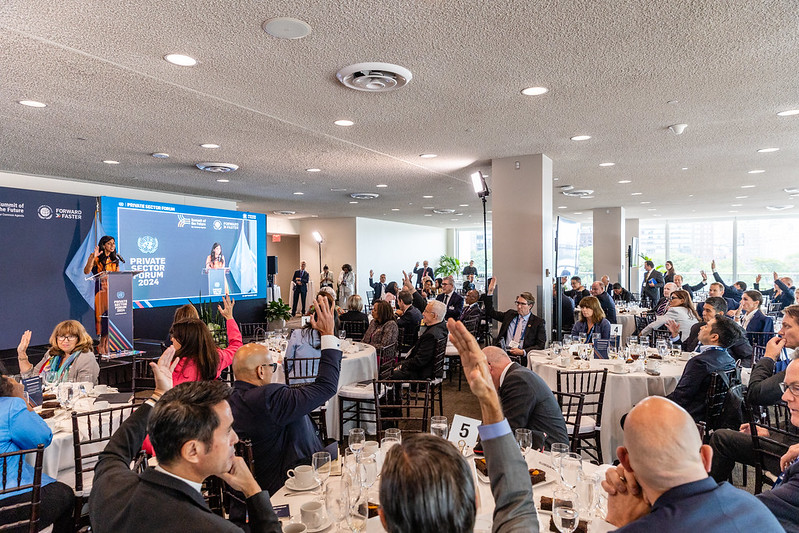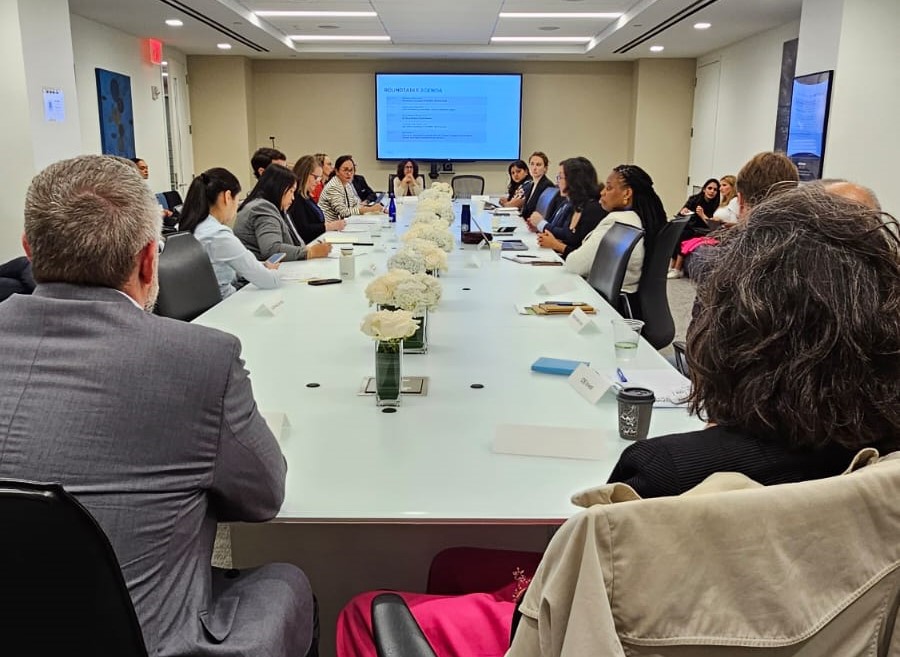New York, United States of America
01 March 2022
Excellencies, Ladies and gentlemen, dear colleagues,
In the past week, a country has been thrown into chaos; a region has been upended; and the reverberations are being felt around the world.
Hundreds of civilians have been killed and injured in Ukraine.
Innocent people are once again paying the highest price of war.
More than half a million people have fled across borders.
Hundreds of thousands of women, children and men are spending days and nights underground, in basements, car parks and subway stations.
Rockets are raining down on cities including Kyiv.
Electricity and water supplies have been disrupted.
Roads have been damaged or destroyed by bombs.
Local supply chains are broken. Food and medicine are in short supply in some areas.
Strikes on an oil depot and a gas pipeline risk severe environmental damage.
I thank the Member States who have welcomed people fleeing Ukraine. It is important that this solidarity is extended without any discrimination based on race, religion or ethnicity.
For many people remaining in the country, life is becoming increasingly difficult and dangerous.
Most places have little or no infrastructure to shelter and protect large numbers of people who arrive with virtually nothing.
I commend the national and local organizations providing aid, and the Ukrainian humanitarian and health workers caring for those injured in the fighting.
The international community must give them our unequivocal support.
We must help Ukrainians help each other through this terrible time.
Excellencies, Ladies and gentlemen,
United Nations agencies are staying and delivering in Ukraine.
Even before the recent military offensive, humanitarian agencies were reaching three million people in the east.
We will now expand and scale up those programmes, and establish new operations wherever they are needed, across the country.
We and our partners are committed to supporting all those affected, in accordance with the humanitarian principles of neutrality, impartiality, independence, and humanity.
Today, we are launching two plans to help people across Ukraine and beyond.
Within Ukraine, the plan requires $1.1 billion to meet the escalating humanitarian needs of more than six million people affected and displaced by military operations over the next three months.
Outside the country, we are requesting $551 million to help Ukrainians who have fled across borders, principally to Poland, Hungary, Romania and Moldova.
Both plans include funds to boost critical medicine and health supplies, safe drinking water, shelter and protection.
They are coordinated, complementary, and designed for immediate implementation.
I urge you to respond to these life-saving appeals.
Excellencies, Ladies and gentlemen,
United Nations agencies and our partners are now working 24-7 to assess humanitarian needs and scale up aid, particularly to women, children, older people and those with disabilities.
On Sunday, UNHCR delivered its first truckload of household materials to central Ukraine, for families in evacuation shelters and others in need.
UNICEF partners are mobilizing to treat the mental and emotional damage caused by this conflict. Children may suffer lifelong trauma after witnessing war.
The first shipments by the World Food Programme are on their way from Turkey to Ukraine. WFP is building up an emergency operation to reach three million people with food distributions, cash and vouchers.
We are now coordinating partnerships between organizations and groups inside and outside Ukraine, and surging personnel into the country.
As we ramp up our efforts, it is essential that all humanitarian workers are safe and protected, and have guaranteed freedom of movement.
Unimpeded access to all affected people and communities must also be guaranteed.
I call on all sides to uphold their obligations under international humanitarian law.
Excellencies, Ladies and gentlemen,
In our interconnected global era, the crisis in Ukraine could have a serious impact on vulnerable people around the world.
Not only because it will stretch humanitarian funding even further. But because Ukraine is a vital source of grains.
The World Food Programme buys more than half its wheat from Ukraine. Disruption to the harvest could drive up prices and add to global hunger.
This speaks to the urgent need for global solidarity – not only to fund humanitarian aid programmes, but to invest in peace.
The most effective humanitarian relief is to silence the guns.
Now, more than ever, we must intensify our efforts for peace, everywhere.
I thank all countries that have taken initiatives to facilitate negotiations on Ukraine.
The United Nations stands ready to support.
Soldiers must return to their barracks.
Leaders must turn to diplomacy.
I urge all those with influence to use it to end this senseless conflict.
Thank you.





